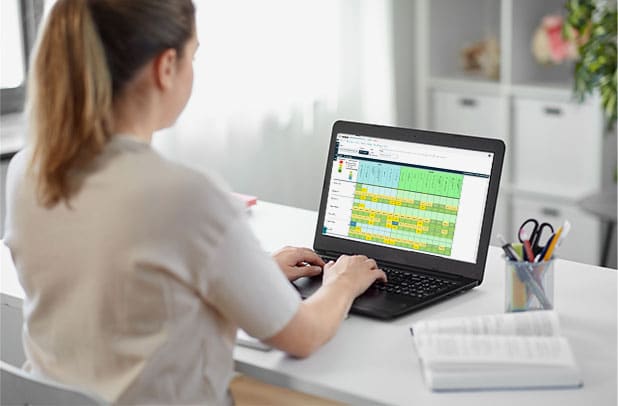
Now Is Not The Time For Schools To Abandon The Data Ship
It may be tempting to think that you don’t really have to worry about your data under Ofsted’s new Education Inspection Framework (EIF) because inspectors won’t consider non-statutory internal data in relation to progress and attainment.
Inspections now focus on the real substance of education: the curriculum. This means that inspectors will spend less time looking at test data, and spend more time looking at what is taught and how it is taught.
But that doesn’t mean Ofsted have lowered their expectations and schools have permission to abandon the data ship, concentrate on the curriculum and base decisions on intuitive judgements.
Far from it.
Ofsted still want to know how schools are achieving their results within the context of teaching a broad, balanced and rich curriculum. They are interested in whether schools are putting children’s best interests first.
It’s worth remembering that when it comes to internal achievement data and assessment, things still matter. It’s not so much about the actual data but about how you use it for improvement.
Paragraph 196 of the EIF says, “Inspectors will ask schools to explain why they have decided to collect whatever assessment data they collect, what they are drawing from their data and how that informs their curriculum and teaching.”
Although inspectors won’t pore over the data itself first hand in the way they once did, they will be keen to know how well your pupils are learning the curriculum. This is why it is important to share the insights you have from your internal data and what you’ve done with it.
Inspectors will want to know how teachers use assessment to embed knowledge and identify next steps for pupils (para 183).
Schools still need to use data but understand its limitations and avoid misuse and overuse. It can often be a barrier to further improvement and Ofsted are all too aware that too much assessment and data collection can create unnecessary burdens for teachers and pupils.
In fact, Paragraph 188 says, “If a school’s system for data collection is disproportionate, inefficient or unsustainable for staff, inspectors will reflect this in their reporting on the school.”
When managed intelligently, data drives improvement and that requires a sophisticated system so schools aren’t wasting their time and adding to their already considerable workloads. Unfortunately, in many schools there is no proper guidance on how to use data and the picture can be blurred by a lack of technical expertise.
The responsible collection of data informs curriculum planning and academic reviews, something which Ofsted has no problem with. When the ‘deep dive’ pedagogical conversations take place, this is a school’s opportunity to showcase what data it has collected and how it is used to maximise learning.
Although there is no longer the need to generate and analyse masses of internal data for inspection, the data is still important for identifying overall strengths and weaknesses. At the heart of every good school policy for school improvement is the effective use of data in self‐evaluation and planning for improved outcomes for every pupil.
Dynamic data can inform school self-evaluation and promote more effective teaching and learning through:
- identifying underachievement and intervention
- collating and monitoring trends
- make insightful comparisons
- ensuring no pupil or pupils become invisible
- informing decisions on more effective allocation of staff and resources
- feeding into performance management
- monitoring the effectiveness of initiatives and strategies
- contributing to evidence‐based discussions with governors and Ofsted
- challenging expectations of staff, pupils and parents
- supporting transitions and transfers especially between key stages within schools
- identifying achievements and setting targets
One of the core elements of a school’s success in raising achievement is the robust focus on tracking and monitoring individual and groups of pupils’ progress and achievement. For this you need high quality assessment, tracking and target setting procedures.
The use of data is one of the levers of change but information and data systems have to be developed that suit the needs of the school.
Schools need support in the use of data and “some of the most important enablers and barriers include data literacy and leadership” (Schildkamp, 2019) which is why turning to a dedicated provider and online school management solution is key.
Educater strongly supports the main business of teaching and learning and provides schools with what they need to ensure that data is simple, accessible, easy to understand, manageable and tailored to their needs. It enables staff to own the data and use it to make improvements.
Educater Assessment provides intuitive software for tracking, managing and analysing the progress of pupils and offers a shared solution so schools can work closely together, resulting in improved information sharing, moderation of pupil’s work and consistency in teacher assessment.
This highly flexible software is a valuable management tool as it can accurately highlight specific weaknesses of individual pupils, inform accurate curricular targets for individual pupils, and provide evidence to support decisions as to where to focus resources and teaching for personalised learning.
The consistent use and analysis of school data promotes effective self‐evaluation and high standards of teaching and learning. It contributes towards a school’s capacity to improve so that key members of staff and governors have a good understanding of how data can be used to evaluate and improve performance.
Assessment is a state-of-the-art school pupil tracker system which enables schools to scrutinise attainment and pupil progress competently and helps teachers and school leaders to get their primary assessment decisions right. It helps you to read the data and know what you are looking at and what to do with the information and includes:
- Teacher Judgement/Point in Time Assessment (PITA)
- Bespoke Curriculum Content
- Pre-loaded National Curriculum Grids
- Custom Scaled Assessments
- Curriculum Manager
Data-driven decision making has been an essential component of educational practice and despite a new EIF, this remains as important as ever because without it, the school has no focus.
The biggest flaw in assessment across schools is meaningless data but thanks to Educater, schools can collect the right information and ensure it is using it effectively.
One of the key recommendations of the Teacher Workload Advisory Group in their report Making data work is “Continue to promote effective use of education technology to improve the efficiency of attainment data collection, monitoring and analysis.”
Educater has the technology and the expertise to make data meaningful and to ensure that pupils are at the centre of assessment and their learning is prioritised. It guarantees that data is connected to questions and dialogue so that teachers can drive real change.
Author: John Dabell










